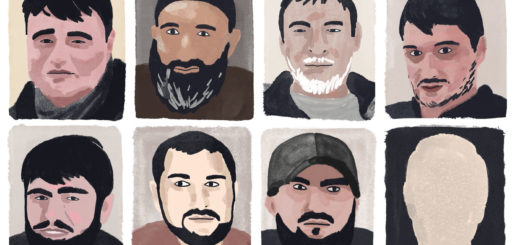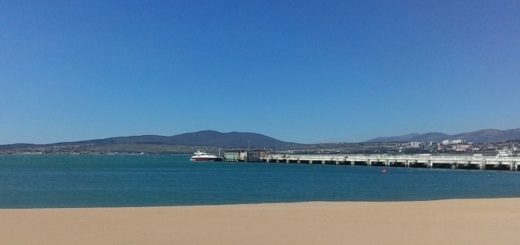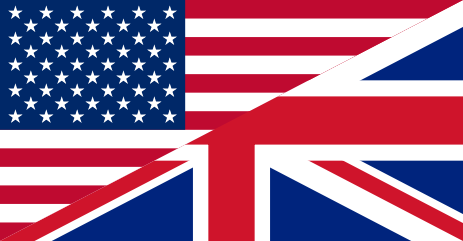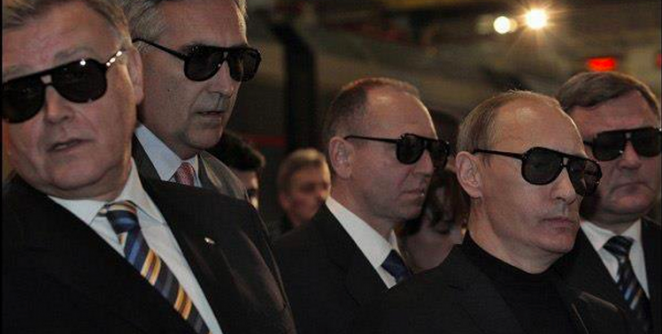Shy renovation. How Siemens and Grundfos pumps ended up in Crimea
In a news story of a Russian state TV channel dedicated to the opening of the water supply station in Simferopol, the audience saw the equipment of Western companies. The supply of such equipment was prohibited by the decision of the Council of Europe immediately after the annexation of Crimea. Scanner Project found out who installed Siemens and Grundfos pumps on the Russian-controlled peninsula.
“Come on, start the pumping station! Fire!” – commanded Sergei Aksenov, head of the annexed Crimea. The ceremony of the demonstration launch of the new Beshterek-Zuisky water supply system was held on March 18, on the seventh anniversary of the armed seizure of the peninsula.
The video shows that the work at the facility is far from complete, but the opening of the water supply system could not but coincide with the date – in the traditions that rooted in Soviet times.
The severe shortage of fresh water is one of the main problems of the peninsula. Before the annexation, it was solved with the help of the North Crimean Canal, which started in mainland Ukraine, but with the arrival of Russian troops, it was closed.
The issue of water in Crimea was resolved at the government level, Deputy Prime Minister Marat Khusnullin was put in charge. Until January 2020 this official was Sergei Sobyanin’s deputy – he was responsible for the Moscow construction complex.
Khusnullin regularly came to Crimea with inspections. Local and federal TV channels have repeatedly shown how he checks the construction of the Beshterek-Zuisky water supply system: the project was compared in scale to the Crimean bridge, while emphasizing that Russian equipment was used to drill six artesian wells, build a pumping station and a water pipeline to Simferopol.
But in the VGTRK story about the launch of the station, it is clear that the pumping systems of the German Siemens and Danish Grundfos are installed at the station. In 2019, these companies entered into a partnership “to tackle global water problems”.
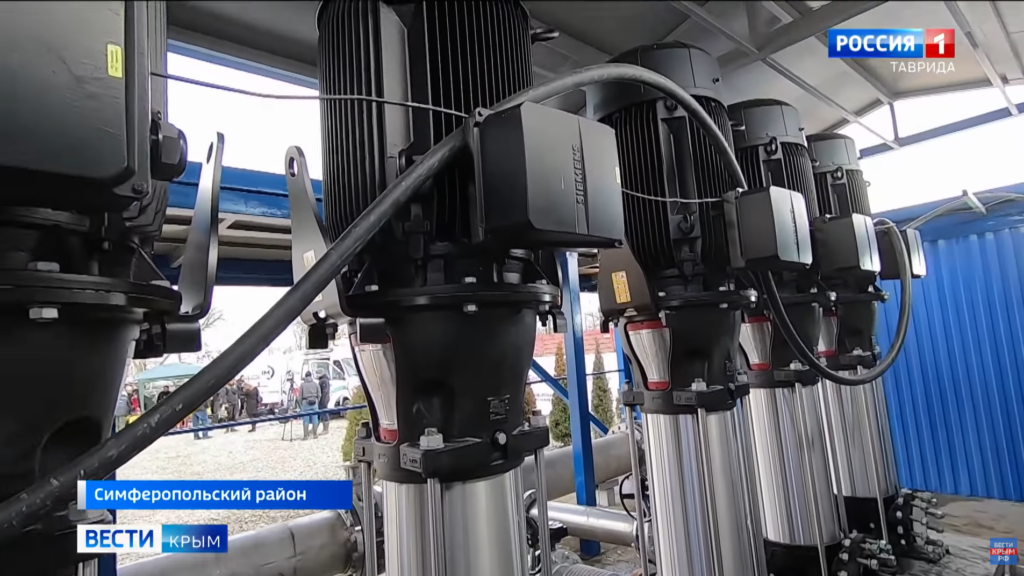
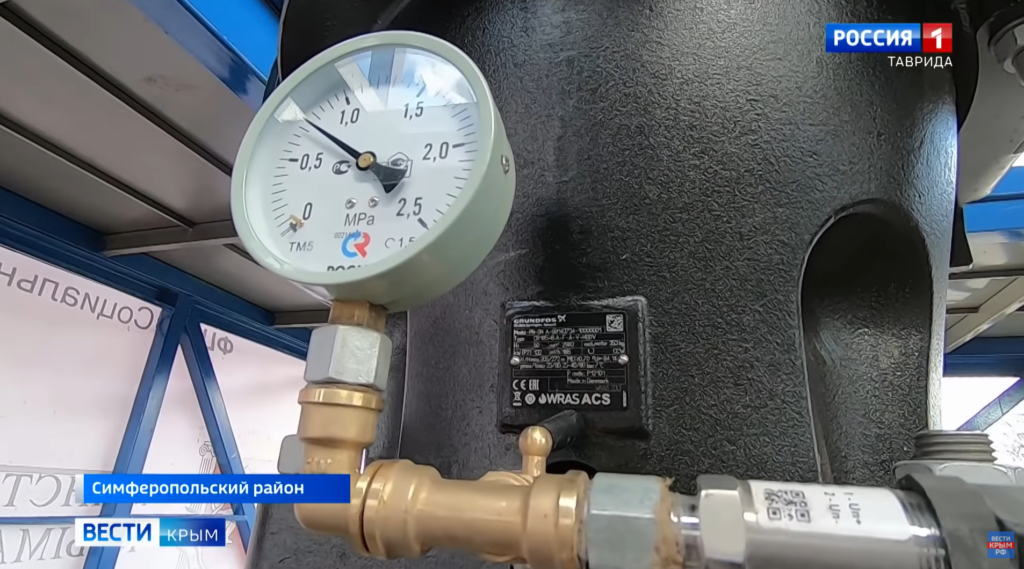
The supply of such pumps, among other equipment, to Crimea by a European company is prohibited by the Council of Europe Decree No. 692/2014. The decision on restrictive measures in response to the illegal annexation of Crimea and Sevastopol was adopted on June 23, 2014.
Officially, the design, survey, construction and installation work at the Beshterek-Zuysky water intake facility was carried out by the Moscow company OOO “Modern Renovation Systems”. Two government contracts for a total of 1.5 billion rubles were signed in February 2021, but in fact, work began earlier – in October 2020.
Since June 2020, 70% of “Modern Renovation Systems” has been owned by Mikhail Burenko, the head of the “Polymer Tubes” magazine. The founder of the magazine is the “Polyplastic” group of companies. Another 30% is owned by Lev Gorilovsky, the president of this group of companies. The latter personally participated in the launch of the water supply system.
Lev Gorilovsky is the son of Miron Gorilovsky, CEO and one of the founders of the “Polyplastic” group of companies, a very large player in the plastic pipe market. The group of companies owns 13 factories for the production of plastic pipes in Russia, three in Belarus and one in Kazakhstan.
Back in 2008, Moscow Mayor Yuri Luzhkov instructed Moscow housing and communal services structures to switch from steel pipes to polymer pipes in the course of repairing and replacing communications as they are more durable. This decision significantly increased the volume of government orders for “Polyplastic”.
But to fulfill the state contract for the construction of the object in Crimea, the group of companies used a separate legal entity. The reason is simple: the ownership of “Polyplastic” is registered through the Cypriot companies Radius Systems Holdings Ltd and APG Polyplastic Group Ltd, and the group falling under European sanctions could seriously harm business.
“Polyplastic” produces polymer pipes, but for the installation of systems the company actively purchases fittings and pumping equipment, including in Europe. According to customs declarations, the suppliers of the group of companies include the Spanish Belgicast Internacional, S.L, the Dutch Sabic Europe B.V., the Austrian Borealis AB, the German Simona AG, and the Swiss GF Piping Systems.
“Polyplastic” has its own production facilities outside Russia, including in China, Great Britain and Latvia, and sales offices in other countries, including Ukraine. Towners of Polyplastic, control the European companies through the British Radius Group Holdings Ltd.

According to Companies House, co-owners and managers of Polyplastic, Miron Gorilovsky and Valentin Buyanovsky, are UK residents.
In 2016, in an interview with a specialized website, Miron Gorilovsky spoke about the Crimean facility as follows: “No major projects are planned, with the possible exception of the water supply system in Crimea. It is not known whether the state will finance the previously announced programs”.
In the news story of the Crimean VGTRK, the operator showed not only pumps of European companies, but also plastic containers produced at one of the plants of the “Polyplastic” group of companies.
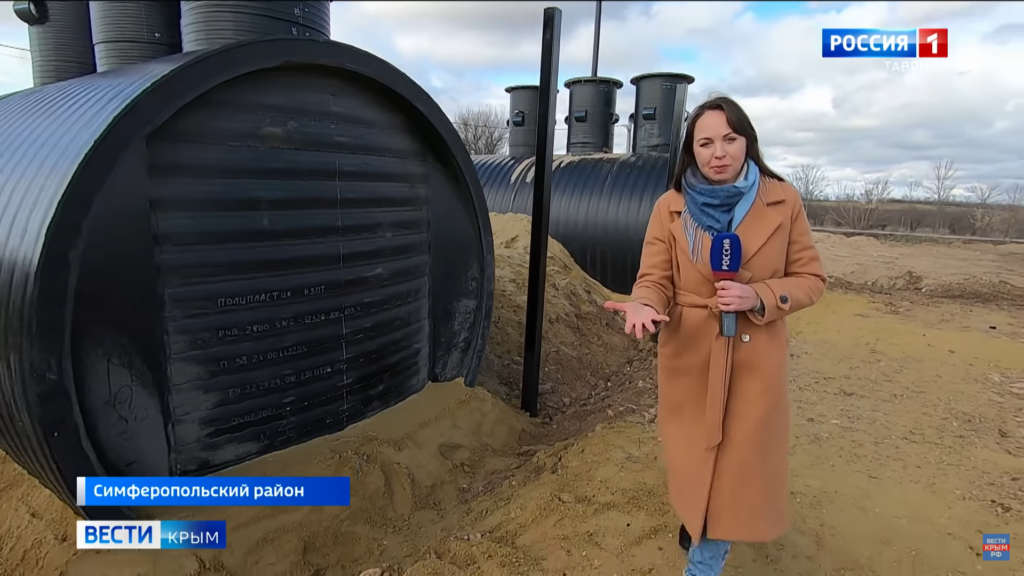
After the annexation, Crimea faced not only water shortages, but also power outages. In solving this crisis, Siemens equipment was also used, and it was much more complex than water pumps. Large-capacity gas turbine units were installed on the peninsula. These are piece goods, therefore, in order to import them bypassing the sanctions, the Russian side lied that the equipment would be installed in Taman, on the opposite bank of the Kerch Strait. Siemens readily believed in these assurances.
The sanctions regime against Crimea by the countries of the European Union and the United States has been in effect for 7 years, but there is no information about any official investigations regarding the violation of sanctions. In 2019, Scanner Project, together with the Current Time TV channel, published the Crimean Archive study, recording the activities of dozens of Western companies violating the sanctions.

